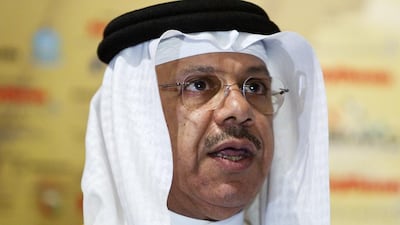RIYADH // The Gulf Cooperation Council has backtracked on criticism of Egypt in its row with bloc member Qatar over Libya, in a move a Saudi-owned daily said Friday reflected divisions among member states.
GCC secretary general Abdullatif Al Zayani had issued a statement on Thursday rebuking Egypt for accusing Qatar of supporting terrorism in Libya because of reservations it expressed about Egyptian air strikes earlier this week.
But late in the evening, Mr Al Zayani issued a new statement disavowing the earlier one and insisting all six member states fully supported Cairo in its intervention in its lawless western neighbour.
“GCC states have stressed their full support to Egypt and its brotherly people in fighting terrorism and protecting its citizens at home and abroad,” he said in the later statement.
The Saudi-owned pan-Arab daily Asharq Al Awsat said Mr Al Zayani's earlier statement, which was carried by Gulf state media including the official Saudi Press Agency, was issued without consulting all six GCC members.
The newspaper said some members voiced disagreement with the content, and that the second statement was issued to express the “real position” of the bloc.
GCC states Bahrain, Kuwait, Oman, Saudi Arabia, Qatar and the United Arab Emirates have taken opposing sides in the intensifying conflict in Libya, where rival parliaments and governments have been vying for power since last summer.
Qatar supports the Libya Dawn militia alliance which seized Tripoli last August, confining the internationally recognised government to the remote east.
The UAE and Saudi Arabia have joined Egypt in supporting the recognised government and its main military backer, divisive General Khalifa Haftar, analysts say.
* Agence France-Presse

